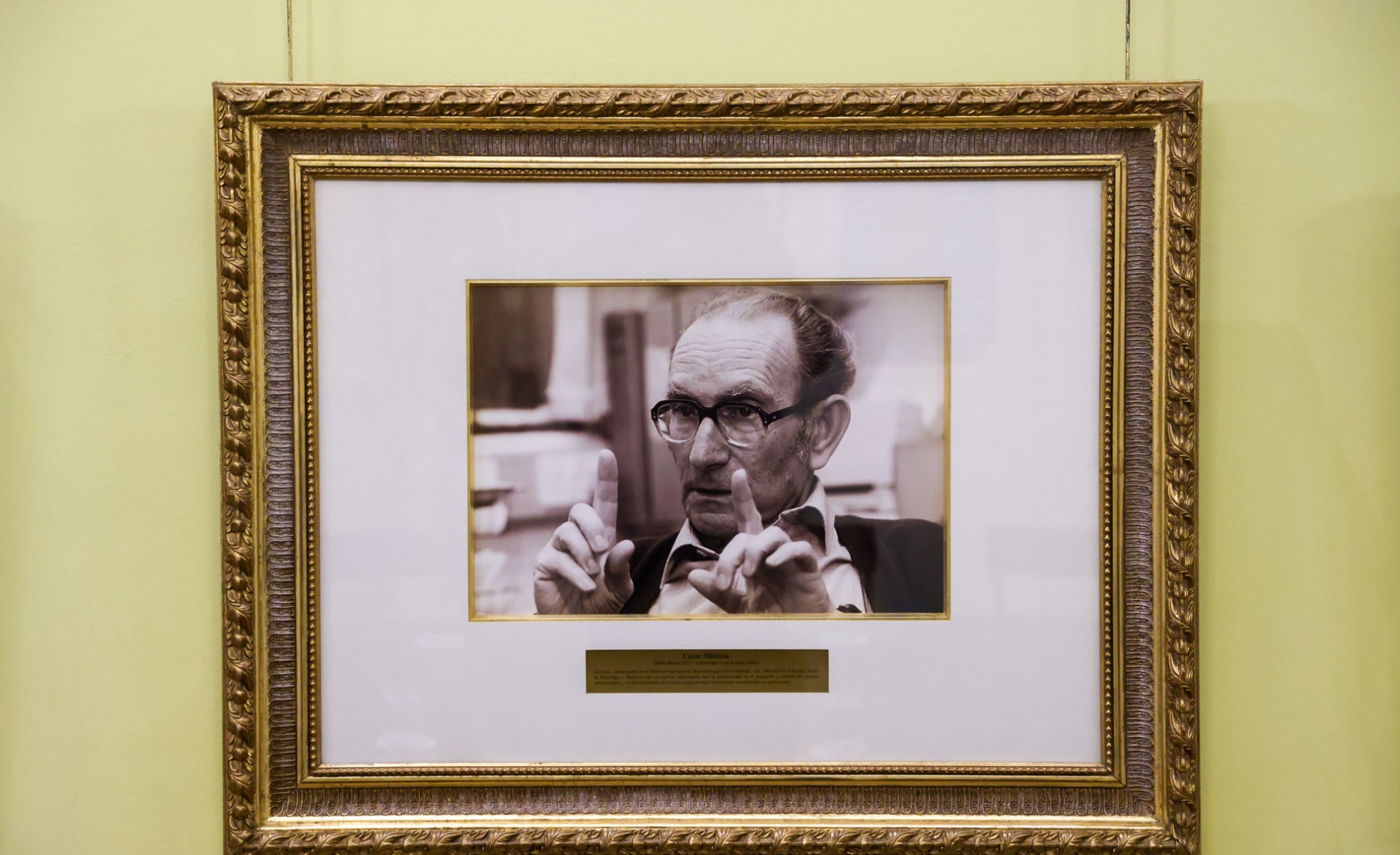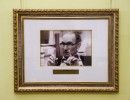César Milstein was born in Bahía Blanca on 8 October 1927. His research on monoclonal antibodies, a key technique for the treatment of diseases such as cancer, was a milestone in modern medicine and its applications continue to save lives today. He received the Nobel Prize for Medicine in 1984. His commitment to science and humanity led him to refuse to patent his discovery, convinced that knowledge should be shared.
Milstein grew up in the city of Bahía Blanca, where from a young age he showed a deep interest in science. At the age of 13, influenced by the book The Microbe Hunters, he decided that his life would be dedicated to scientific discovery. After completing his secondary education, he moved to Buenos Aires to study chemistry at the University of Buenos Aires, where he received his PhD in 1956.
In the early 1960s, Milstein was awarded a fellowship for postdoctoral studies at the University of Cambridge, England, where he worked under the direction of Frederick Sanger. He spent much of his career there, but returned briefly to Argentina in 1961 to head the Molecular Biology Division of the National Institute of Microbiology. In 1962 he returned to Cambridge, where he reached the pinnacle of his scientific career.
In 1984, together with Georges Köhler, he was awarded the Nobel Prize for the development of monoclonal antibodies, proteins that have revolutionised immunology, biotechnology and medicine. This discovery led to significant advances in the diagnosis and treatment of diseases such as cancer, and opened up new possibilities for medical research and vaccine development.
Throughout his life, Milstein maintained a deep social commitment, defending the idea that science should be at the service of humanity. He rejected the idea of profiting from his discoveries and advocated the universality of knowledge. He died on 24 March 2002 in Cambridge, leaving an invaluable legacy to science and the world.
In recognition of his contribution to science, Milstein occupies a place in the Salón de la Ciencia Argentina at Casa Rosada. His legacy is a source of national pride and an example for the global scientific community to follow.

